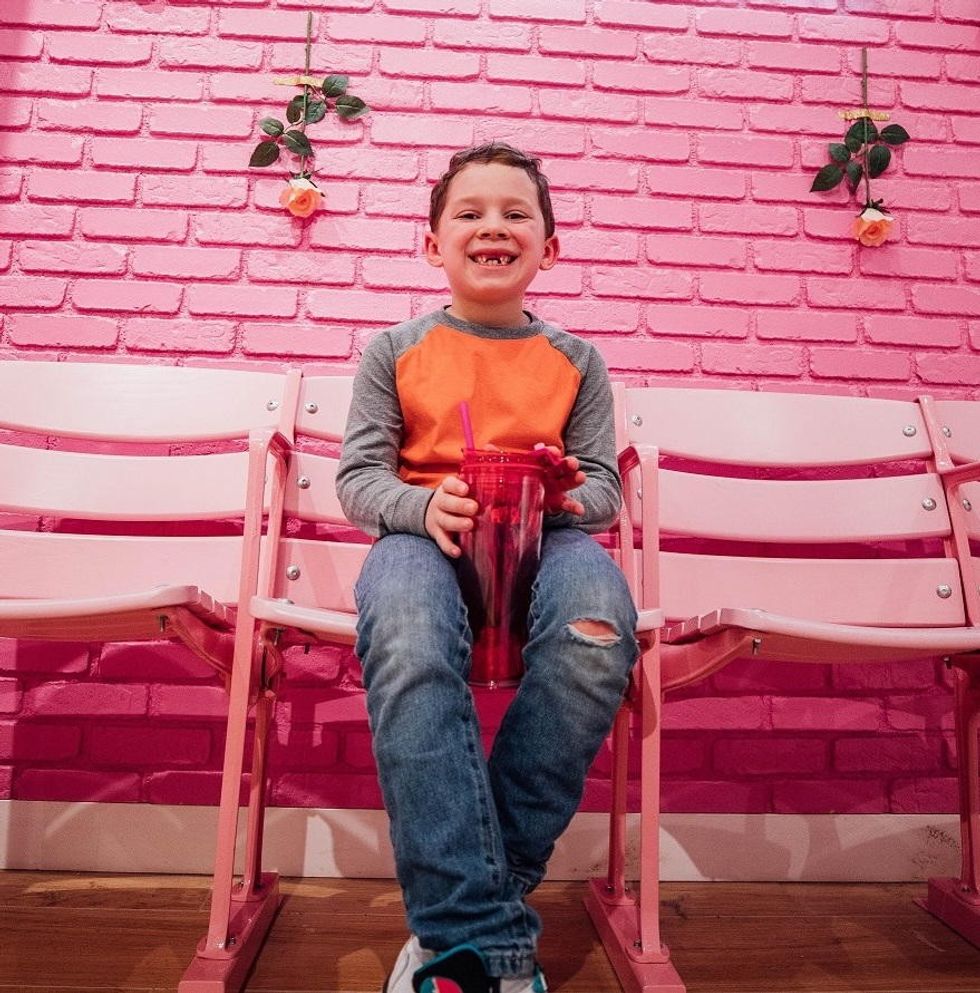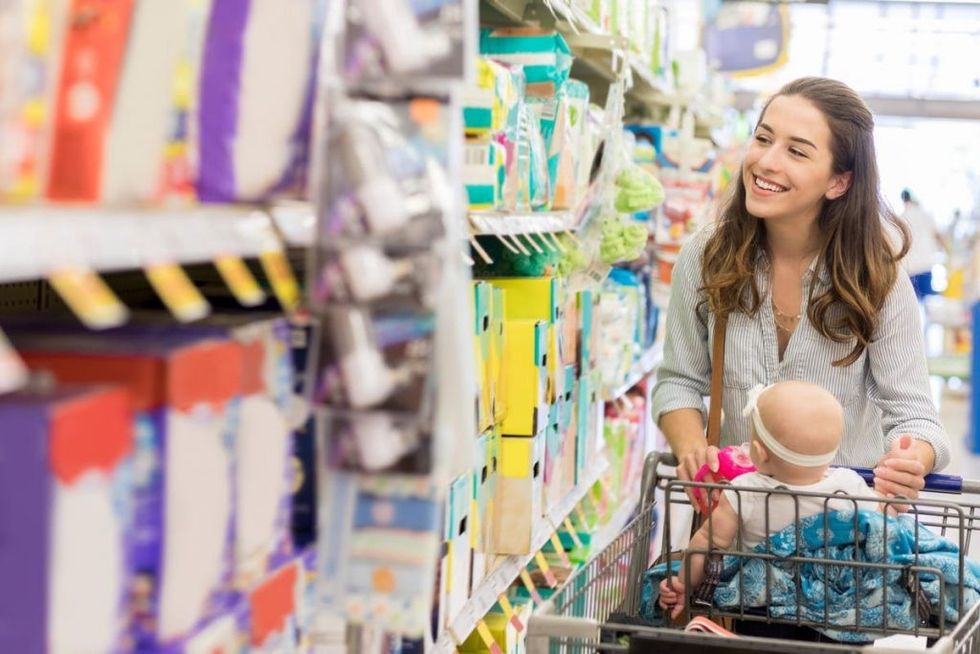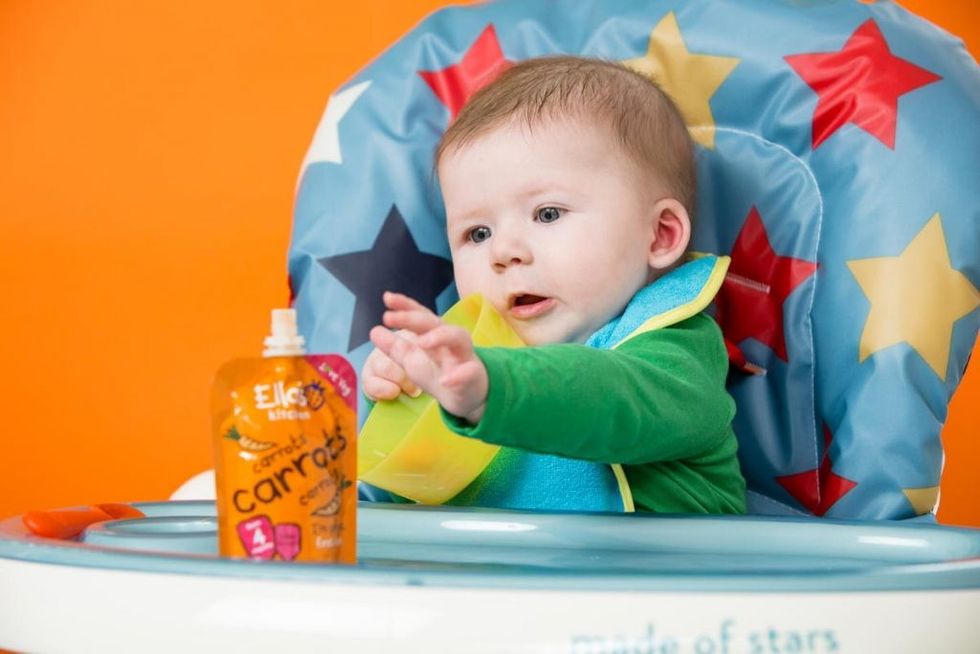The standards in baby and toddler products that parents expect have been rising steadily in recent years, with the demand for organic ingredients, lower salt,less sugar and tasty, healthy recipes uppermost.
The industry has responded with a plethora of innovative, “vegan-tarian” and planet-conscious new brands (not that the babies would notice - this is mostly for selling to the parents, who are understandably looking for the best products for their children).
Experts expect children’s palettes to continue to evolve. Flavours will need to stretch further.
There will always be a need for mainstream flavours, e.g. strawberry, but flavours need to reflect the emerging flavour trends.
So established brands such as Aptamil, Heinz, Farleys, Nestle, Cow & Gate and Sma are now fighting for shelf-space alongside relative and absolute newcomers – brilliant brands and products making the category more lively than ever.
Biotiful, Healthy Kids, Clearly Scrumptious, Piccolo, Little Freddie, For Aisha, Babease and many more were all hopefully growing sales last year when – you guessed it – the lockdown hit the country.
Over the last few weeks speculation has begun concerning whether or by how much the birth rate will have fallen due to the lack of … contact that usually produces new-borns nine months later – and what sort of delayed effect this might have on baby products. If the category shrinks because fewer babies are being born, however, the premiumisation trend could offset declining volume by adding value.

More concerning is the fact that as mums and dads spent much more time indoors, there was extra time for “scratch-cooking” and preparing ingredients for meals rather than buying time-saving jars or pouches for junior. Pack formats – which anyway were becoming less persuasive for savvy parents looking for health quality – are now arguably even less persuasive when fresh veg is on parents’ minds.
So over the last 12 months, according to Nielsen, category value is down over £10 million and sales volumes have collapsed by almost eight per cent. Just five of the top 20 baby food brands actually increased sales, including Ella’s Kitchen.
Several elements played into this. Baby and toddler sales are the essential distressed purchase – parents rushing out to get something for suppertime – and this has doubtless been lessened by the decline ofhassled, time-starved, on-the-go lifestyles under lockdown. In addition to that, the explosion in online ordering and delivery has doubtless stolen sales of bulky items such as nappy packs from trips to brisk and mortar stores.
Yet, on the other hand, what we know of convenience sales during the pandemic suggests that much extra revenue is available with the right products, given that so many consumers are shopping more locally and spending money on treats and small luxuries – for example, as has been observed with sales in the pets category.
This is not to suggest babies are the same as pets, but parents might well splash out on the right thing if they see it, to enliven and cheer themselves up by indulging their child. And again, they are looking for tasty, healthy products with the right organic and socially-conscious message – or for special nutritional benefits, such as Cow & Gates’ A2 protein milk.
It is also true that the increasing prevalence of private labels in the chains are hurting brands that can still hope to do well in independents.
Success stories
With the importance of impulse and convenience shopping growing continuing into lockdown 2021 – and average basket spend increasing – it’s now more vital than ever that baby food is represented well in-store to offer a one-stop solution for families with babies and young children, explains Sam Higgins, Brand Controller for Ella’s Kitchen at distributor RH Amar.
“Impulse is currently the only channel where baby food is currently in growth, up by +1.9 per cent volume and +1.3 per cent value [versus an eight per cent drop across grocery as a whole – see above].”
Higgins says this is because families have turned to their local stores to stock the products they know and trust – “So it’s never been so important for convenience retailers to make sure they are getting their offer right.”
Higgins says that six out of 10 parents with children under five regularly shop at convenience stores and two-thirds have bought baby food and drink from indies. Stocking the right products can buck the trend of declining sales:
“As the category’s best-selling baby food brand, Ella’s Kitchen has the highest brand awareness (93 per cent) and consideration rates (87 per cent) , whilst in the last year almost half of new parents (45 per cent) have signed up to become Ella’s friends online,” she says – and Ella’s Kitchen sales rose by 1.7 per cent in 2020, with value sales up by +11.3 per cent across all retail channels.
In a total category worth £228 million across all retail channels, Higgins reveals that Wet Ambient and Finger Food are the standout hot spots, as convenience packs, formats and usage occasions continue to be motivations for more and more shoppers.
“Sales of Wet Ambient across all retail channels now total £126.3m million to claim a 55.4 per cent of all baby food sales,” says Higgins. And within impulse & convenience, Wet Ambient products account for an even greater share, generating 65 per cent of total baby food sales – or £2 of every £3 spent.
Across all retail sectors, pouches are now outselling jars by three to one and constitute a 56 per cent(59 per cent in convenience) share of this increasingly popular sub-category“And Ella’s is the runaway leader,” Higgins adds, “accounting for more than £4 out of £5 (81 per cent) of all spend on pouches in impulse.”
It’s important that retailers take notice of fast-shifting category dynamics to ensure they are stocking the products their customers want most, says Higgins: “One of the most important considerations for any retailer is to stock a range that matches both their own and their customers’ category journey.”
Higgins recommends that retailers new to the category should focus on a simple fixture with between three to four best-selling products as a minimum – for example, a first tastes single flavour pouch for weaning, a pouch for children aged from four months, a meal pouch for children from seven months, plus one finger-food snack line.
Stock the Right Range
“For those looking to stock Ella’s, our recommendation would be to stock three pouches – Prunes, Strawberries & Apples, and Chicken Casserole – plus one snack, Melty Sticks,” Higgins advises.
She also recommends that for more experienced retailers, who already have an offering, it is about making sure the range is relevant to the latest shopper demands – so focus on replacing jars with pouches (a permanent change, it seems), and increase your core shelf range to between six and eight of the best-selling products, including an additional finger food and a smoothie fruit, “such as Ella’s Kitchen The Red One”.
NPD and nutritional advances spur sales in the category and baby formula is an essential and repeat-sale (brand-loyal) category.
Last year, Danone launched new sachet packaging for its Aptamil and Cow & Gate powder baby milk ranges in the UK, and now it has announced the launch of a new formula range made using A2 protein milk, that is claimed to be easier to digest and absorb than other types of milk.
Some baby formulas use A1 protein, which gets digested in the small intestine, producing a peptide that then enters the bloodstream, and which has been apparently linked (unproven) to stomach discomfort and symptoms similar to lactose intolerance.
“The structure of A2 protein is more comparable to human breast milk, as well as milk from goats, sheep, and buffalo,” reports Medical News Today, adding that effects due sometimes from normal A1 milk –gas, bloating, and diarrhea, for example – are absent after drinking A2 protein. A great boon for parents then, if true!

Danone claims that Cow & Gate Simply A2 will be the only range in major UK retailers made with milk sourced from cows that naturally produce A2 protein milk.
The new offering comes in an 800g Eazypack format and covers all stages of baby feeding, with three variants available: Infant Milk (from birth); Follow-On Milk (from six months); and Toddler Milk (from one year).
The A2 protein milk in Cow & Gate Simply A2 comes from “carefully selected” cows that naturally produce only the A2 beta-casein protein.
“Interest in A2 protein milk has been rapidly growing around the world in recent years,” says Sarah Cumming, UK consumer marketing director for Danone Specialised Nutrition.“It’s a trend that is transforming the entire dairy industry and has most recently been shaking up the formula milk market globally, with seven A2 protein formula milks launched in the last six months worldwide.”
The list of vegan, organic, healthy and premium products, popular now with lockdown parents, is likely to add A2 milk as one of the increasingly essential and best-selling baby products if the current trends continue.
“Inspired by nature and our knowledge of breastmilk, we’re proud to be the first to bring this innovation, which has been simply made for little tummies with milk sourced from cows that naturally produce A2 protein milk, to major UK retailers. It is a clear opportunity for retailers to cater to consumer interest and tap into a global trend,” Says Cumming of the A2 product, which should begin to be available about now
Conclusion
Following an up-and-down 12 months in the category – empty shelves after the “panic buying” (or stocking up) of the first lockdown, and then the shift in purchasing and consumption patterns by a nation largely stuck at home – things will eventually return to normal.
The likelihood is that value will make up for lost volume – to an extent – in the category, but that new products and formats can be expected to perform relatively well. Any drop in birth rates should inevitably rebound to at least average for a period after normality resumes.
Meanwhile the format and pack change, and the premiumisation, go on:“Shoppers continue to opt for the convenience of pouched offerings from a brand they can trust, and Ella’s is the standout performer, accounting for no fewer than six of the top 10 selling Wet Food products in convenience,” says Higgins.
She concludes that more than a third (35.8 per cent) of baby food sales across all retail channels are now taken up by Finger Food, and sales of this increasingly important sub-category are growing faster in impulse & convenience than any other retail sector, up by +12.7 per cent in the last year.
By contrast, sales of Dry Baby Food have suffered the fastest decline year-on-year, and now account for just 8.8 per cent of all baby food sales.
Stock accordingly.






